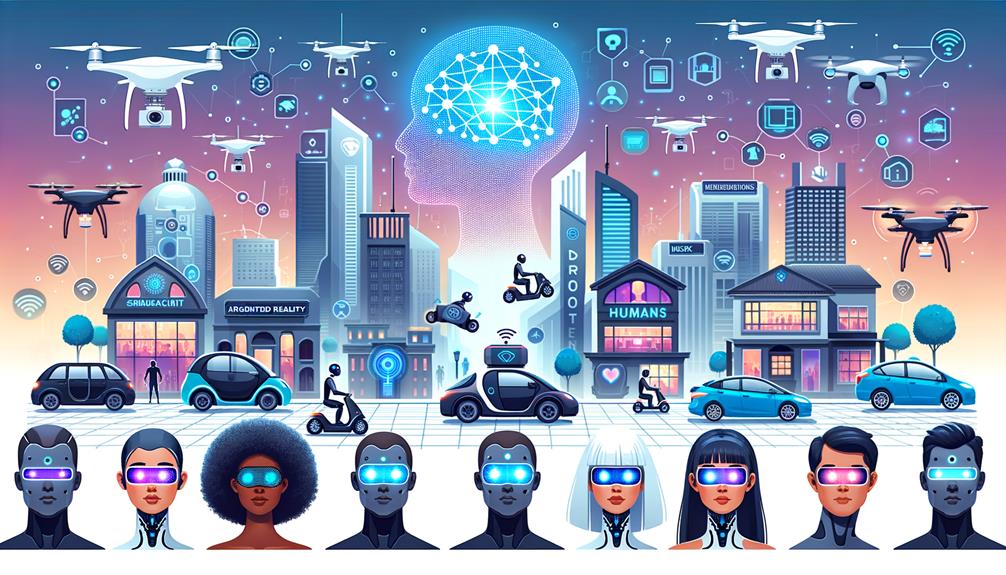How Artificial Intelligence Is Changing Everyday Life
Artificial Intelligence (AI) is no longer a futuristic concept. It’s already here, quietly transforming the way we live, work, and interact. From the smartphone in your pocket to the recommendations you see while shopping online, AI is woven into the fabric of our everyday lives.
In this blog post, we’ll explore the practical ways AI is shaping modern life, often without us even realizing it. We’ll cover applications in communication, transportation, healthcare, entertainment, education, and more.
What Is Artificial Intelligence?
At its core, Artificial Intelligence refers to machines or systems that can mimic human intelligence. This includes learning from data (machine learning), understanding language (natural language processing), recognizing patterns, making decisions, and even adapting over time.
AI isn’t one single technology; it’s a combination of algorithms, data, and computing power working together to create systems that can think and act like humans.
1. Smartphones and Virtual Assistants
AI is in your hand, literally. Whether it’s Apple’s Siri, Google Assistant, or Amazon’s Alexa, virtual assistants use natural language processing (NLP) to understand and respond to human queries. They set reminders, send messages, play music, and even control smart home devices.
Examples:
Predictive text while typing messages.
Facial recognition to unlock your phone.
AI-powered photo categorization in apps like Google Photos.
2. Personalized Recommendations
Ever wondered how Netflix knows what to suggest next or how Amazon recommends just the right product? That’s AI in action. These platforms collect user behavior data and use algorithms to analyze preferences and offer personalized content.
Where you see it:
YouTube’s “Recommended for You” section.
Spotify’s Discover Weekly playlists.
Online shopping product suggestions.
These systems make your digital experience more personalized and efficient.
3. Healthcare Revolution
AI is making huge strides in healthcare, enhancing diagnosis, treatment, and patient care.
Applications include:
AI-driven diagnostics: Tools like IBM Watson Health can analyze medical records and suggest diagnoses or treatments faster than traditional methods.
Medical imaging: AI algorithms can detect abnormalities in X-rays or MRIs, sometimes with greater accuracy than human doctors.
Virtual health assistants: Chatbots like Ada or HealthTap provide initial assessments and help patients decide when to see a doctor.
AI also supports drug discovery, robotic surgeries, and patient monitoring systems.
4. Smart Homes and IoT Devices
AI enhances smart home systems to make them truly “intelligent.”
Examples:
Thermostats like Nest learn your schedule and adjust temperatures automatically.
Security systems with AI-powered cameras can detect unusual activity.
AI-enabled kitchen appliances can suggest recipes based on ingredients you have.
These devices adapt to your habits and create more comfortable, energy-efficient living spaces.

5. Transportation and Navigation
AI is revolutionizing how we get from one place to another.
Key innovations:
Navigation apps: Google Maps and Waze use real-time data and AI to suggest the fastest routes.
Self-driving cars: Companies like Tesla, Waymo, and Uber are investing heavily in autonomous vehicles that rely on AI to interpret surroundings and make driving decisions.
Ride-sharing: Apps like Uber and Lyft use AI to optimize driver routes, match riders efficiently, and calculate prices dynamically.
6. Finance and Banking
AI is making financial services faster, smarter, and more secure.
Common uses:
Fraud detection through real-time transaction monitoring.
Chatbots for 24/7 customer service.
Robo-advisors that help with investments and portfolio management.
Credit scoring systems using alternative data sources.
AI helps banks streamline operations while enhancing the customer experience.
7. Education and E-Learning
AI is personalizing education, making it more adaptive and accessible.
Applications include:
Platforms like Duolingo use AI to adapt lesson plans to user performance.
Virtual tutors and chatbots provide homework help.
AI grading tools assist teachers by automatically evaluating assignments.
Predictive analytics identify students at risk and suggest interventions.
This not only benefits students but also empowers educators with data-driven insights.
8. Workplace Automation and Productivity
AI is reshaping the modern workplace by automating repetitive tasks and enhancing decision-making.
Examples:
ChatGPT and other tools can write content, code, or generate reports.
AI-powered tools manage calendars, schedule meetings, and send reminders.
Customer support chatbots handle routine inquiries.
HR departments use AI to screen resumes and shortlist candidates.
While some fear job losses, AI is more likely to change jobs than eliminate them—augmenting human workers rather than replacing them.
9. Retail and Customer Experience
Retailers use AI to optimize supply chains, predict demand, and create personalized shopping experiences.
Innovations include:
Virtual fitting rooms that let you try clothes using AR and AI.
Inventory management systems that anticipate stock needs.
Automated checkout systems using computer vision (e.g., Amazon Go).
These applications improve efficiency while enhancing customer satisfaction.
10. Entertainment and Creativity
AI is now contributing to art, music, and storytelling.
In entertainment:
AI composes music, writes poems, and even creates movie scripts.
Platforms like TikTok and Instagram use AI to boost engaging content.
Game developers use AI for smarter in-game characters and world-building.
Tools like DALL·E, Midjourney, and ChatGPT enable users to bring creative ideas to life with minimal effort.
The Ethical and Social Challenges
While AI brings many benefits, it also raises serious ethical concerns:
Privacy: AI collects vast amounts of data—raising questions about consent and surveillance.
Bias: If trained on biased data, AI can perpetuate discrimination.
Job displacement: Automation may replace certain roles, especially low-skill jobs.
Accountability: Who is responsible when an AI system makes a mistake?
Addressing these challenges requires thoughtful regulation, transparent systems, and responsible development.

Final Thoughts
Artificial Intelligence is not a distant concept—it’s embedded in the decisions we make, the tools we use, and the services we rely on daily. From simplifying chores to revolutionizing healthcare and transportation, AI is changing the world in subtle yet profound ways.
As AI continues to evolve, its impact on everyday life will only grow. The key is to embrace these changes thoughtfully, ensuring technology remains a tool that serves humanity—enhancing our lives, not replacing them.


